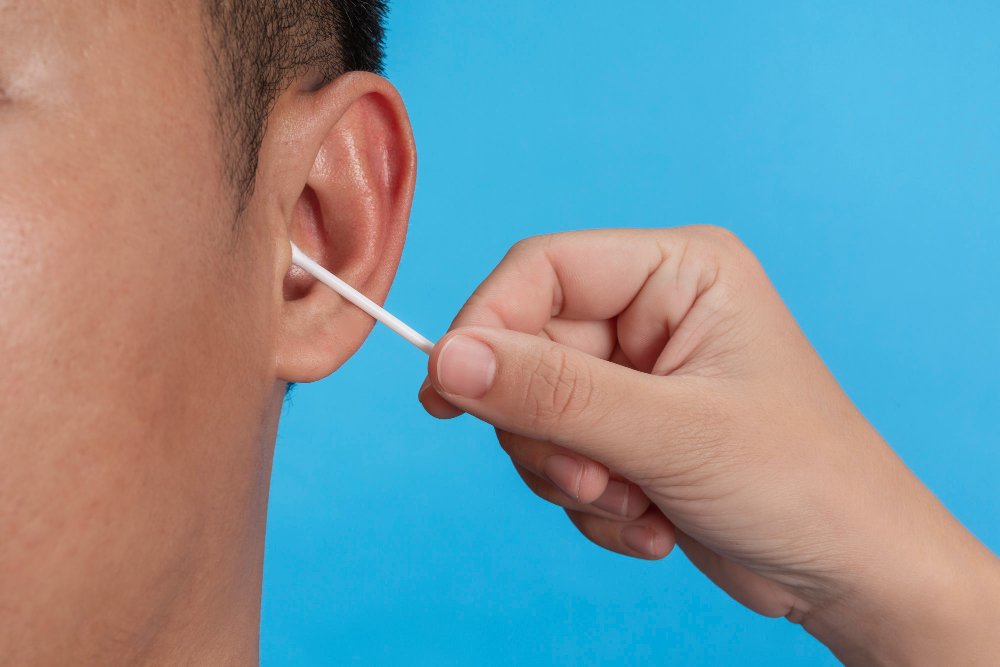
Here are 20 tips for managing an ear infection:
- Consult a Doctor: Visit a healthcare professional for an accurate diagnosis and appropriate treatment plan.
- Follow Prescribed Medication: Take prescribed antibiotics or ear drops as directed by your doctor.
- Pain Relief: Use over-the-counter pain relievers like ibuprofen or acetaminophen to alleviate discomfort.
- Apply Warm Compress: Place a warm, moist cloth against the affected ear to relieve pain and reduce inflammation.
- Rest: Get plenty of rest to aid the body’s healing process and boost immunity.
- Keep Ear Dry: Avoid swimming or getting water into the ear to prevent further irritation.
- Avoid Smoke and Irritants: Stay away from cigarette smoke and other irritants that can exacerbate symptoms.
- Nasal Decongestants: Use nasal decongestants to relieve congestion and improve drainage from the Eustachian tubes.
- Stay Hydrated: Drink plenty of fluids to stay hydrated and help thin mucus secretions.
- Humidifier: Use a humidifier to keep the air moist, which can alleviate congestion and discomfort.
- Prop Up Head: Sleep with your head elevated to encourage fluid drainage from the ear.
- Avoid Air Travel: Refrain from flying until the infection has cleared to prevent worsening symptoms.
- Limit Ear Cleaning: Avoid inserting cotton swabs or other objects into the ear canal, as this can worsen irritation or damage the eardrum.
- Herbal Remedies: Consider using herbal remedies like garlic oil or mullein oil for their purported antimicrobial and anti-inflammatory properties.
- Avoid Loud Noise: Steer clear of loud noises or environments that could aggravate ear pain.
- Stay Warm: Keep the affected ear covered in cold weather to prevent temperature fluctuations that can cause discomfort.
- Ear Protection: Wear earplugs or earmuffs in noisy or windy conditions to protect the ears from further irritation.
- Ear Massage: Gently massage the area behind the ear to improve circulation and promote drainage.
- Monitor Symptoms: Keep track of symptoms and report any changes or worsening to your healthcare provider.
- Follow-Up: Schedule a follow-up appointment with your doctor to ensure the infection has resolved and to address any lingering symptoms or concerns.
These tips can help alleviate discomfort and promote healing, but it’s essential to seek medical advice for persistent or severe symptoms, especially in the case of recurrent ear infections or complications.

Here are some oils that are commonly used for managing ear infections:
- Garlic Oil:
- Garlic oil has natural antimicrobial properties and may help fight infection. It can be applied to the affected ear after diluting it with a carrier oil like olive oil.
- Tea Tree Oil:
- Tea tree oil possesses antibacterial and antifungal properties that can help combat infections. Mix a few drops of tea tree oil with a carrier oil and apply it around the outer ear, avoiding contact with the eardrum.
- Mullein Oil:
- Mullein oil is known for its soothing and anti-inflammatory properties. It can help relieve ear pain and inflammation when applied topically around the outer ear.
- Basil Oil:
- Basil oil has antimicrobial properties and may help alleviate ear discomfort associated with infections. Dilute basil oil with a carrier oil and apply it to the outer ear.
- Olive Oil:
- Olive oil can help soften earwax and alleviate discomfort caused by ear infections. Warm the oil slightly and apply a few drops into the affected ear, then gently massage the outer ear to facilitate drainage.
- Lavender Oil:
- Lavender oil has calming and anti-inflammatory properties that may help reduce ear inflammation and discomfort. Dilute lavender oil with a carrier oil and apply it around the outer ear.
- Chamomile Oil:
- Chamomile oil has soothing and anti-inflammatory effects that can help relieve ear pain and irritation. Mix chamomile oil with a carrier oil and apply it around the outer ear.
- Eucalyptus Oil:
- Eucalyptus oil has antibacterial properties and may help alleviate symptoms of ear infections. Dilute eucalyptus oil with a carrier oil and apply it around the outer ear, avoiding contact with the eardrum.
When using essential oils for ear infections, it’s essential to dilute them properly with a carrier oil to avoid irritation or adverse reactions. Additionally, avoid applying essential oils directly into the ear canal, as this can cause further irritation or damage to the eardrum. If you experience severe or persistent symptoms, consult with a healthcare professional for proper diagnosis and treatment.




